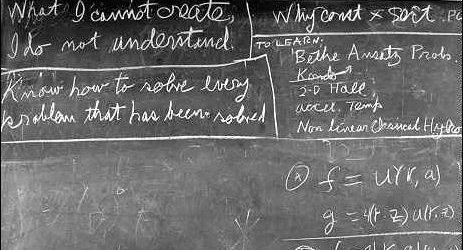Intelligentsia impresario John Brockman has done an admirable job of assembling some very impressive thinkers for his web site Edge.org. Although most are scientists, there is a fair number of people from the other estates, and the cross-fertilisation of ideas frequently draws even hardened specialists out of their shells, to make pronouncements on things well outside their fields of expertise.

Hal and Dave
Although this is not always a good thing, it does make entertaining, stimulating discussion, and I can recommend the site wholeheartedly.
Every year Brockman sets a current question to his group (whose members are, cringingly, called “Edgies”), and turns the resulting answers into a book. This year’s question, and the book’s title, is “What do You Think About Machines That Think?”
The responses, which take the form of short essays, are only very roughly organized by theme. These themes bleed slowly from one to another, without dividing section headings. This provides a surprisingly effective minimalist structure to the book, hinting at emergent concepts that transcend the distinct points made by individual authors.
There are so many excellent ideas presented in the book, that I can recommend it, too, without reservation. So rather than write a normal critical review here, I thought it would be more useful to look at these themes, especially how the thinkers have thought through them, rather than just analyse what they’ve written. From this we can glean a lot about the state of the fields of AI and machine intelligence.
Continue reading →






